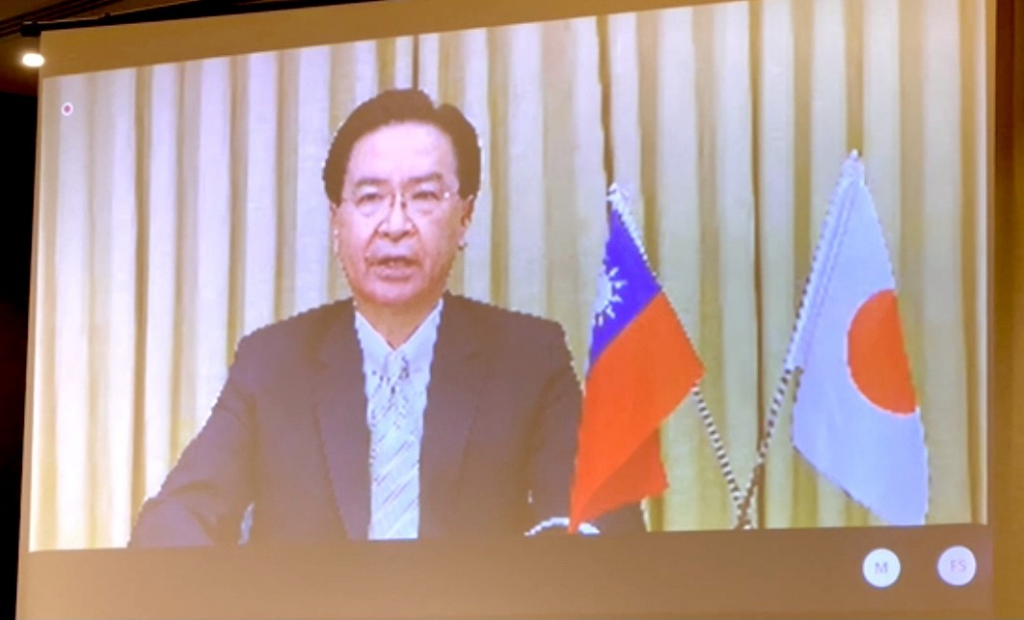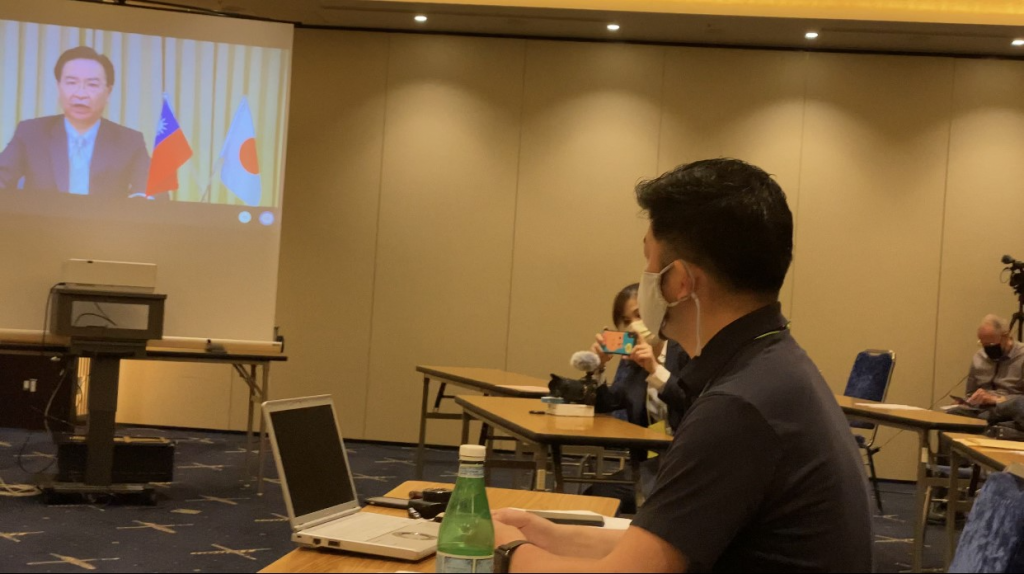



Khaldon Azhari
TOKYO: Taiwanese Foreign Minister Joseph Wu on Thursday said the vast majority of Taiwanese support the status quo, which means rejecting unity with China, but at the same time, not calling officially for ‘independence’.
“We have all the foundations that make a country, but we want to keep the situation as it is,” Wu told a rare online press conference hosted in Tokyo by the Foreign Correspondents’ Club of Japan. He was speaking from Taipei.
China considers Taiwan a Chinese province and threatened to use all means to prevent the independence of the island. Wu said Taiwan is ready to defend its existence with the help of allies and friends including Japan.
In the conference, the Taiwanese foreign minister called for freedom in areas controlled by China, notably Hong Kong, Tibet and Xinjiang and said the measure imposed by China is seen by many as genocide.
“I think the issue related to Xinjiang, Tibet, Inner Mongolia or Hong Kong is about freedom and democracy, especially freedom of speech, something that all international journalists care very much about,” Wu said at the Foreign Correspondents’ Club of Japan.
“If you look at what is happening in Xinjiang these days, it is the Chinese imposition of very extreme control over the region. And the kind of measures by the Chinese government that have been described by many countries in the world as crimes against humanity or genocide.
“Xinjiang is a beautiful place and people over there are distinctive from the Chinese race, and they also have their own separate religious beliefs. And in all free society, all democratic societies, everybody is free to have their worship, free to express their opinions, they are free to from their organizations, free to participate in politics and they should be that. If you look at what is happening in Xinjiang and in Tibet and in Hong Kong, we are seeing the situation is deteriorating.”
Wu was particularly scathing in the actions taken by the Chinese government in Hong Kong that have challenged democracy in the region.
“Hong Kong used to be seen as a beacon of freedom and also a free economy in East Asia, but after the imposition of the National Security Law, I think all the freedom is gone,” Wu said. “Even those elected officials are disqualified and many people described that as a current-day tragedy. And we hate to see that happen. And, of course, most important of all is to allow freedom to be restored in all these regions so that people go on with their lives without political persecution. And we would support international endeavors to free those people to allow them freedom of speech and their political freedom.”
In other matters, Wu talked of Taiwan’s energy policy, including the commissioning of a nuclear power plant as well as promoting renewable energy. Taiwan is hoping to have 20 percent of its energy produced by renewable sources by 2025.